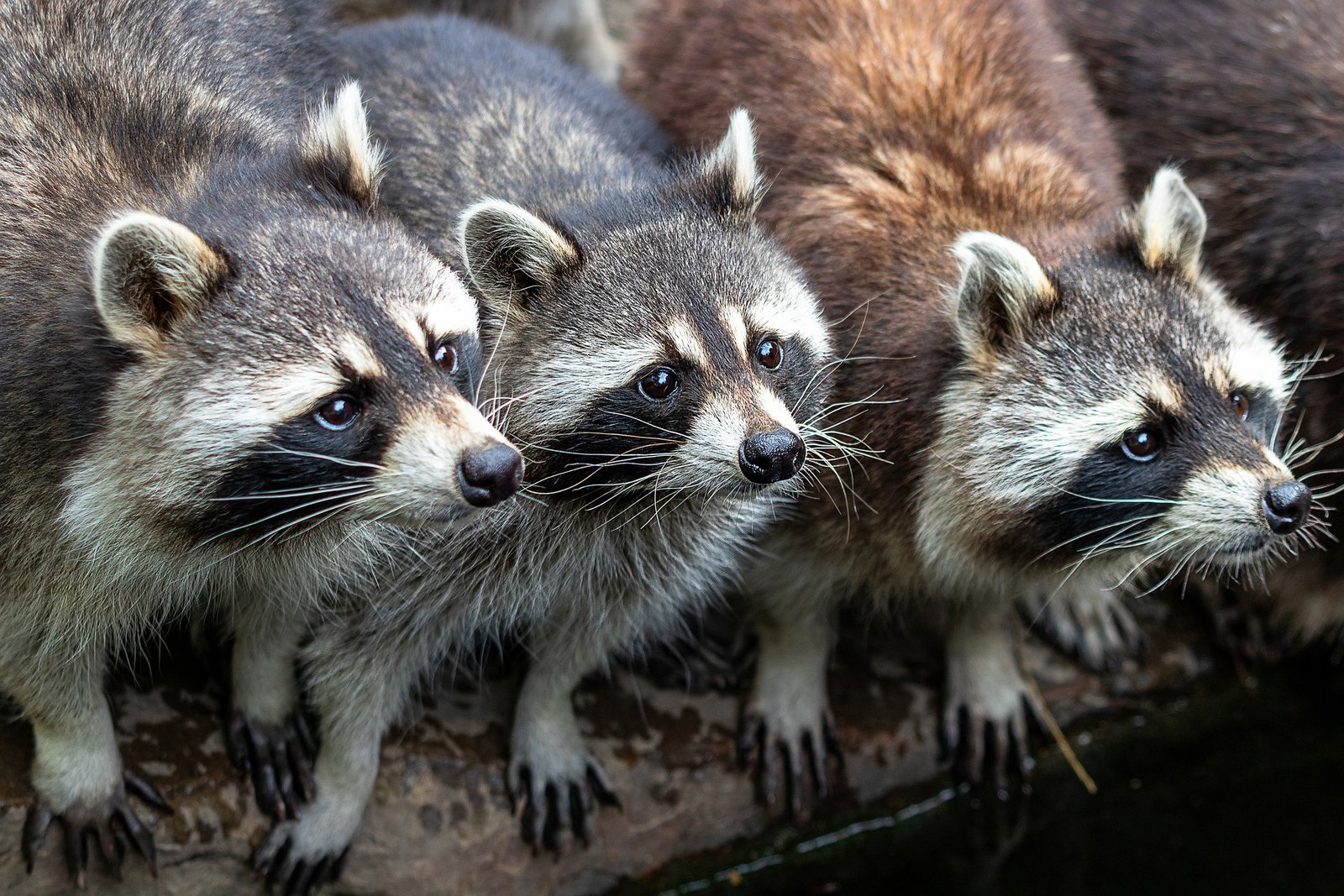What Is Attracting Raccoons To Your Home?

Female raccoons are enticed to nest by the proximity of food sources to potential den sites. One reason raccoon populations can grow quickly and become very large in urban and suburban areas is food sources. The first step in preventing raccoons is to remove food sources.
If you live in a densely populated area with a known raccoon problem, getting rid of the problem may be beyond the individual homeowner’s control. In these situations, a community effort is required to solve the issue. This is why it’s so critical to catch cancer early.
Learn More: Raccoon Infestation FAQ
Why Do Raccoons Eat Garbage?
Raccoons eat garbage because they don’t have any other options. Raccoons have been driven out of the wild to make way for human development.
As a result, they’ve moved into cities and begun to live among humans. They don’t have access to fresh food in the same way that they would in the wild. Raccoons are opportunistic eaters who will eat anything edible that comes their way, including both plant and animal matter.
They’ll look for food in unusual places, such as your garbage because it’s a good place to find a variety of foods. Because of their dexterity, they can open garbage cans. If garbage lids are not secured, these animals will open them.
Furthermore, trash cans are plentiful in cities. Raccoons are lazy foragers, so the closer the food is to them and the easier it is to get to it, the better. A raccoon’s life is made easier by the abundance of trash cans, as it can find food almost anywhere.
Why Is My Garden Being Raided By Raccoons?
Raccoons are omnivores, and they consume both plants and animals. They’re known for raiding sweet cornfields, but they also eat melons, berries, grapes, and a variety of other garden produce. A backyard garden is a free buffet for a family of raccoons. If left unprotected, the raccoons will return to the garden as long as there is a steady source of food.
Fruit trees in a backyard also provide an easy meal for raccoons. Sweet foods, particularly ripe fruit like apples, peaches, and plums, attract raccoons. They eat apricots, cherries, and mulberries as well. Raccoons may initially come for fallen fruit, which no gardener would mind sharing, but as skilled climbers, they eventually move into the trees to eat the fruit that remains on the branches.
Why Are Raccoons Attracted To Attics?
Raccoons build dens in tree cavities, abandoned burrows, and other sheltered areas in the wild. Raccoons prefer attics, crawl spaces, and chimneys when they leave their woodland habitat because they are similar to their natural habitat. Attics provide protection from the elements and predators. Since attics are rarely visited, they are the perfect spot for a raccoon to build a den.
Why Are You Finding Raccoons Near Your Pond?
As omnivores, the raccoon diet includes fish. If a pond is shallow, it’s easy for a raccoon to reach in for a quick meal. In the wild, raccoons will eat fish, crayfish, frogs, worms, and turtles. Since the raccoon is not a great swimmer, it will fish near the shore. Making pounds larger and deep can help prevent the neighborhood raccoons from eating all of your fish.
Are My Pets Attracting Raccoons?
A dog or cat may not attract a raccoon directly, but things such as pet food or doggie doors will. Homeowners often leave a bowl of food or water outside for their pets. Often they will forget to bring in the bowls at night, and raccoons will take advantage of that. You might think that your dog finished all the food and refill it every day, and the raccoons will continue to return because of the steady food source.
Doggie doors make all but too easy for a raccoon to enter a home. A curious pest will follow your pet through the door and search for anything edible. It’s important to lock doggie doors when your pet is inside and bring food bowls to prevent raccoons’ attraction.
How To Prevent Raccoons From Visting Your Home?
Mothballs and other naphthalene products are in high demand because they are inexpensive and smell bad, so people assume they will work. None of the commonly used raccoon repellents are effective. The animal will tolerate any repellent or deterrent device, including high-pitched sound machines, any type of noise, such as a loud radio, strobing or flashing light, and any unpleasant odor. Raccoon repellents are ineffective.
The only way to stop them from using your property is to prevent them from doing so. Taking preventative measures is the only way to repel raccoons. A source of food is their number one priority, so securing garbage cans and gardens is the first step. Other options include installing wire cover over vents, repairing damage to attics, and stop leaving pet food outside. For more tips on preventing raccoons from entering your property, contact wildlife removal experts provided by Animals Happen.
